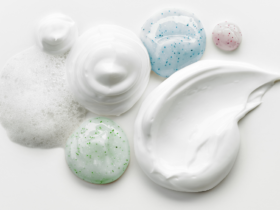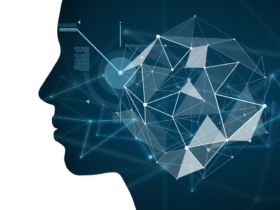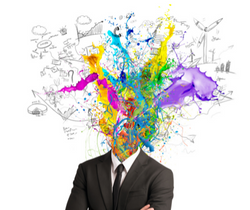The Impact of Wearable Technology on Healthcare
Wearable technology has transformed the healthcare industry in recent years, providing patients and healthcare professionals with access to real-time health data. From simple fitness trackers to more advanced devices like smartwatches and health monitors, wearables have made it easier than ever to track health metrics, monitor chronic conditions, and prevent potential health issues. In this article, we’ll explore the significance of wearable technology in healthcare, examine current applications of wearables, and discuss the future of this rapidly evolving field.
Why Wearable Technology Matters in Healthcare
Wearable technology has the potential to revolutionize the way we approach healthcare. By providing patients with real-time health data, wearables can help individuals take a more proactive approach to their health and prevent potential health issues before they arise. Wearables can also make it easier for healthcare professionals to monitor patients remotely, reducing the need for frequent office visits and improving patient outcomes.

Applications of Wearable Technology in Healthcare
Wearable technology has a wide range of applications in the healthcare industry, from monitoring vital signs to helping patients manage chronic conditions. Here are just a few examples:
Fitness tracking: Wearable fitness trackers like Fitbit and Garmin are popular among consumers for tracking steps, calories burned, and other fitness metrics. These devices can also monitor heart rate and sleep patterns, providing users with a comprehensive view of their overall health and fitness.
Remote patient monitoring: Wearables like smartwatches and health monitors can transmit real-time health data to healthcare professionals, allowing them to monitor patients remotely and intervene if necessary. This is particularly useful for patients with chronic conditions like diabetes or heart disease.
Medication adherence: Wearables can be used to remind patients to take their medication on time, helping them to stay on track with their treatment plans and preventing potential health issues.
Stress management: Some wearables like the Spire Stone and the Muse headband use biofeedback to monitor stress levels and provide users with relaxation exercises to help manage stress and anxiety.
Disease management: Wearable devices like continuous glucose monitors (CGMs) are becoming increasingly popular among individuals with diabetes, as they can provide real-time glucose data and help individuals manage their blood sugar levels.
These are just a few examples of how wearable technology is being used in healthcare today. As technology continues to evolve, we can expect to see even more applications and use cases for wearables in the future.

The Future of Wearable Technology in Healthcare
A promising future awaits the healthcare industry with the advancement of wearable technology. As technology continues to advance, we can expect to see even more sophisticated wearables that are capable of monitoring a wide range of health metrics and providing personalized health recommendations based on this data. Here are just a few of the advancements we can expect to see in the coming years:
Glucose monitoring for smartwatches: While some CGMs are already available, we can expect to see more advanced glucose monitoring capabilities built into wearable devices like smartwatches in the future. This will be particularly useful for individuals with diabetes, who will be able to monitor their blood sugar levels in real-time without the need for frequent finger pricks.
Advanced artificial intelligence: As wearable technology becomes more sophisticated, we can expect to see even more advanced artificial intelligence (AI) that is capable of analyzing health data and providing personalized health recommendations. This will be particularly useful for individuals with chronic conditions, who will be able to receive personalized treatment plans based on their unique health data.
Wearables for mental health: While some wearables like the Spire Stone and the Muse headband are already available for stress management, we can expect to see even more wearables that are designed specifically for mental health in the future. These devices could help individuals manage their anxiety, depression, and other mental health conditions by providing real-time feedback on their emotional state and recommending coping strategies.
Wearables for remote patient monitoring: Wearable technology can also revolutionize remote patient monitoring, especially for patients with chronic conditions who need regular monitoring. With wearable devices, healthcare providers can monitor patient health in real-time, identify potential health issues early on, and adjust treatment plans as needed. This can result in better health outcomes for patients and lower healthcare costs.
Smart clothing: In addition to traditional wearable devices like smartwatches and fitness trackers, we can expect to see even more innovative wearable technology like smart clothing. Smart clothing can monitor vital signs like heart rate and respiration, and even track movements and posture to help prevent injuries.
Nano-biosensors: Another exciting development in wearable technology is the emergence of nano-biosensors. These tiny sensors can be embedded in wearable devices to monitor a wide range of health metrics, including blood sugar levels, hydration levels, and even stress levels. As this technology becomes more advanced, we can expect to see even more use cases for nano-biosensors in healthcare.
In conclusion, wearable technology is set to revolutionize the healthcare industry. With its ability to monitor a wide range of health metrics in real-time, provide personalized health recommendations, and revolutionize remote patient monitoring, the future of wearable technology in healthcare is promising. As technology continues to advance, we can expect to see even more innovative wearable devices that are capable of transforming the way we monitor and manage our health.
Also read about our post on Investment Made Easy: How Rakuten Trade Can Help You Make Informed Investment Decisions










































